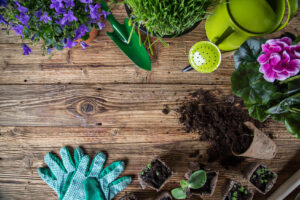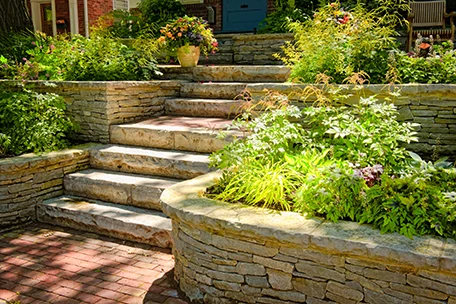 Spring is just around the corner, and it is time once again to prepare your garden! Preparing now will streamline your growing season, helping you yield more crops. Read on for the 10 tips to help you prepare your garden for spring!
Spring is just around the corner, and it is time once again to prepare your garden! Preparing now will streamline your growing season, helping you yield more crops. Read on for the 10 tips to help you prepare your garden for spring!
Don’t Start Too Early
You may be tempted to jump right into your garden, but if the soil is still saturated with snow and rain, you can compact the soil, making it harder for roots to take. Before beginning to plant your garden, do The Soil Test. Grab a fistful of dirt, and squeeze it into a ball. If you can easily shatter it by dropping it a distance of three feet, your soil is dry enough to begin digging. If you want to start on your garden as soon as possible, start by cleaning your tools and making repairs rather than planting.
Clean Gardening Tools
If you left your tools over the winter covered in dirt and compost, clean them up! Cleaning your tools will reduce the amount of bacteria and fungi that you will be introducing into your garden. Sharpen your shears and other tools to make them more effective this season. Clean cuts will save you time in the long run.
Make Any Repairs
If you have anything that needs fixing, such as sagging sideboards, broken fences, etc., now is the time to fix them up. Make sure that you take care of this as soon as possible before they rot and give way. However, if you are setting new fence posts, it is best to do that later in the spring when the soil is dryer.
Clean Your Garden
During the winter, grass, weeds, leaves, and debris can take hold of your garden. Take a day or two to clean up your garden. Clear any dead plants and weeds out of your garden, and remove any sticks, leaves, etc. from your growing zone.
Cultivate Your Soil
You have to loosen your soil before you plant. Rain, snow, and gravity cause your soil to compact over the winter, so it is important to cultivate your garden every spring. Remove any rocks or roots from your bed with a shovel or digging fork, and then break up the soil with a broad-fork.
Plan Your Garden
Decide now what fruits and vegetables you want to grow this year. Every plant has a different growing season, so plan ahead to help make sure that you give everything time to grow.
Fertilize Your Soil
You need to fertilize your soil based on the plants that you are growing. Shallow-rooted plants such as lettuce will only need a little bit of organic fertilizer in the top few inches of soil, while tomatoes, peppers, and other wide-spaced plants will need every planting hole enriched with compost and fertilizer. Heavy feeders, such as corn, require fertilizer raked into deep trenches below the germinating seeds.

